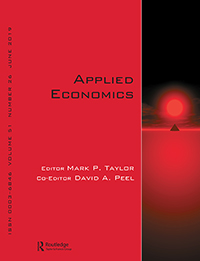
Article publication « Renewable energy drivers: a panel cointegration approach » by Olivier Damette and Antonio C. Marques in Applied Economics review.
Volume 51, 2019 – Issue 26
The expected gains from RES deployment to the reduction of carbon dioxide emissions (CO2) and the cut-off of external dependence of electricity sources could be important. However, it is crucial to understand the determinants of RES growth to help policymakers drawing effective energy polices, involving a commitment of both citizens and governments. In this paper, we use novel panel econometric tools (taking into account structural breaks and cross-section dependence) and find evidence of nonstationary issues and cointegration issues between renewable energy production and its drivers (CO2 emissions, GDP per capita, energy use and dependency). The results thus reveal that non-stationary issues should be attended, otherwise they could be biased. Using suitable estimators (DOLS, FMOLS) with two different data sets and different proxies and taking common factors into account by MG estimates, we find that there is no environmental concerns effect explaining the growth of renewables in European countries. However, national revenues, energy consumption (demand effect) and energy dependency have a positive impact on renewables deployment. Considering these results, economic assistance (subsidies) might be a mean to increase further the renewables deployment in EU countries and education about renewables deployment is needed.
